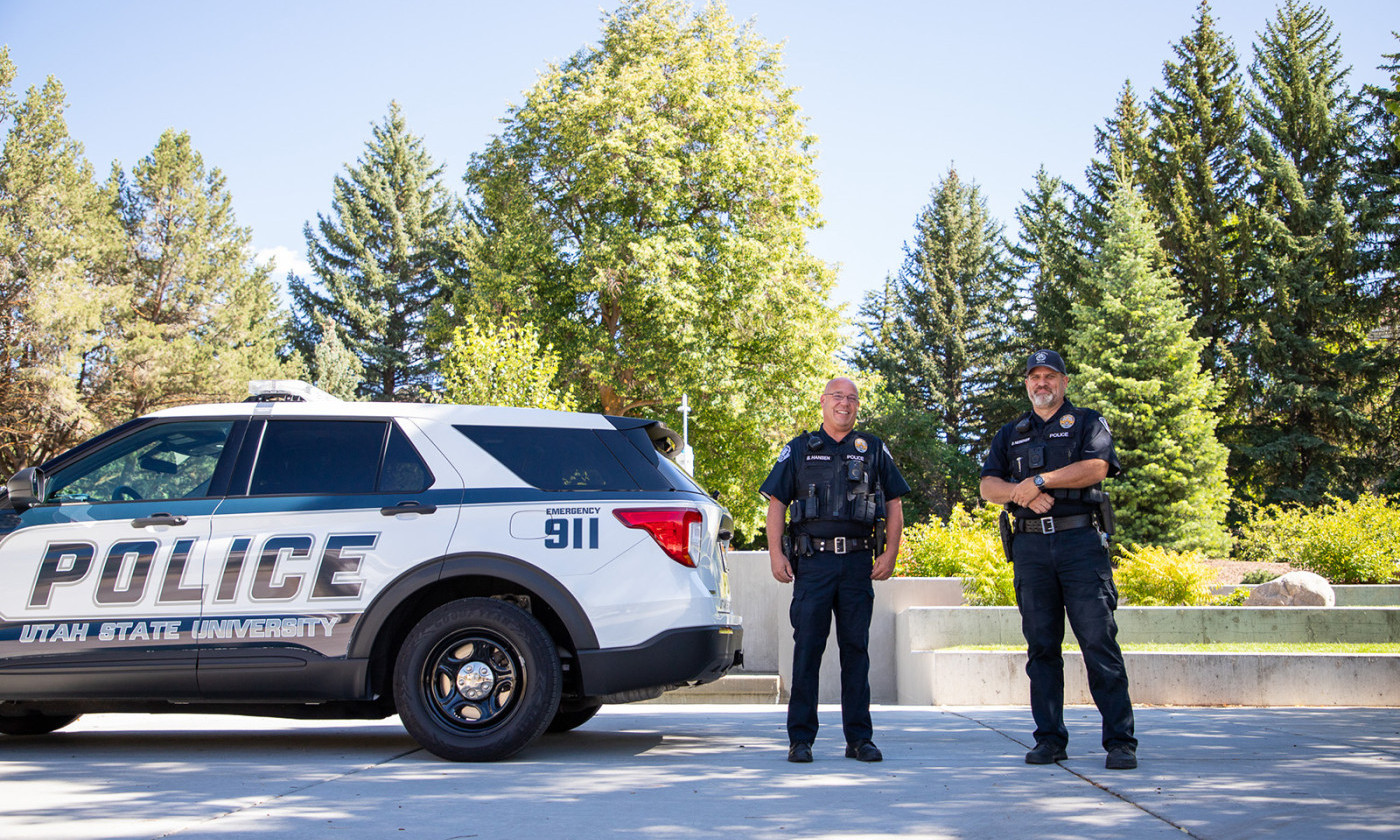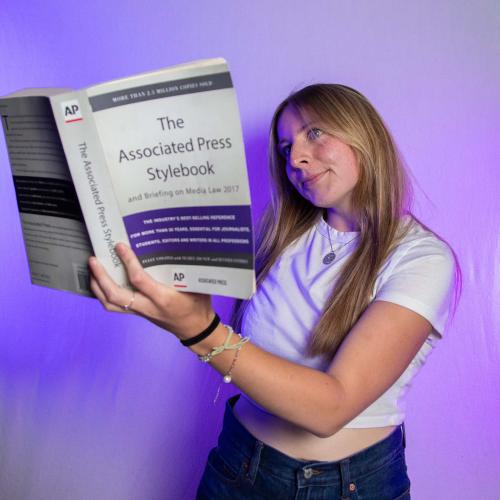This story is jointly published as part of the Utah College Media Collaborative, a historic cross-campus project bringing together emerging journalists from Salt Lake Community College, the University of Utah, Utah State University and Weber State University. The collaborative is an Amplify Utah project with support from PBS Utah.
In the event of an active shooter, aggressor or emergency on campus, colleges and universities typically have a plan on how to communicate with students, faculty, staff and the community.
At Utah State University, this plan is Aggie Alert. Campus police use the system to disseminate information as quickly as possible through email and SMS text message. Alerts are only sent by authorized officers at the USU Police Department, said Police Chief Jason Brei.
Emergency alerts, he said, can be sent out as quickly as someone can get from a dispatch call to a computer.
Three types of alerts can be sent through the system – emergency notifications, crime alerts, and safety alerts. Public safety officials, Brei said, use a decision matrix to determine which alert will be sent depending on the situation.
Brei said one of the most important elements of an Aggie Alert is a call to action. Each message will end with a line of direction – “avoid the area” or “remain in place”.
Emergency notifications, for example, are used when the health and safety of the campus community is immediately threatened by a situation like a gas leak, an active shooter, or a dangerous weather event. Crime alerts, also called timely warnings, are used for serious threats arising from criminal activity. Safety alerts are used for situations that require attention, but are less threatening. This includes events like power outages and university closures because of weather or an infectious disease.
“With staffing it can be challenging, because we send that [alert] out and now you have mom or CNN calling from the east coast like ‘what’s going on?’, so you get bombarded,” Brei said. “So we try to make the messages as distinct and direct as possible.”
When the danger or event has been contained or otherwise managed, an all-clear message is sent using the Aggie Alert system.
The University of Utah, Salt Lake Community College and Weber State University have similar systems in place.
Brei said that campus police use the contact information that students have on file with the university to inform Aggie Alerts, but students can opt-out anytime. Family or community members who wish to receive the alerts can also opt-in.
Brei stressed that if someone sees anything of concern while on campus, they should call it in to the police. If someone calls for an Aggie Alert to be sent, officials will assess the situation and decide whether or not it warrants a response.
“If they're talking about a person of color, or there are some things like, ‘OK, that's not suspicious,’” he said. “When in doubt, we will send an officer to go check that out. We try to have that relationship and have that communication: see something, say something. If it doesn't feel right, please let us know; we will come and take a look at it.”
When responding to an Aggie Alert, Brei said campus police adhere to the national standard and follow the ALERRT training model, which stands for Advanced Law Enforcement Rapid Response Training. Brei added that the university has also implemented preventative measures to ensure the safety of attendees at large university events. Police will try to counter threats by interacting with the community, he said, and keeping a consistent presence on campus.
“At sporting events or at large venues we have staffing plans,” Brei said. “And we have incident command systems established so that we could have officers and specific areas for visual deterrence.” – With contributions from Maren Archibald and Caitlin Keith
Leah Call, Maren Archibald and Caitlin Keith reported and produced this story as journalism students at Utah State University.





 Large.jpg)


